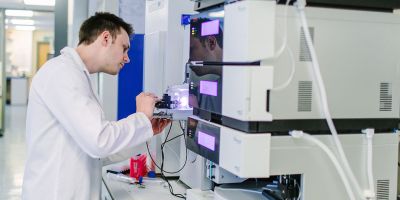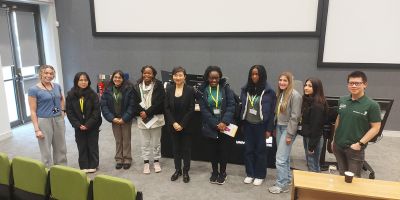Leeds student receives the 2021 Undergraduate Prize from the British Neuroscience Association

Each year, the British Neuroscience Association (BNA) acknowledge and reward researchers and students for their amazing work and contribution to neuroscience.
This year, Sioned Williams was granted the Undergraduate Prize. Sioned has recently graduated from the University of Leeds with a first-class degree in MBiol, BSc Neuroscience (Ind). Upon receiving the award, Sioned said:
I am ecstatic to have won this award! It is great recognition for the countless hours spent in the laboratory and library throughout my degree. I am also very grateful to my master’s supervisor, Dr Ian Wood, for nominating me. This award represents an exciting start to my career in neuroscience!
Asked about her experience as a student at Leeds, Sioned replied:
The neuroscience programme at the University of Leeds is excellent, but I think Leeds really stands out because of all the extra opportunities offered alongside the students’ degree programme.
Hence, Sioned has been a thriving student, capitalising upon all the opportunities available to her as a Leeds student. In her first year, she received a scholarship as part of the Laidlaw Scholars Leadership and Research Programme. As part of this, she completed an independent research project investigating the role of histone deacetylases in neurodegenerative microglia activation. She further said:
“I cultured several mammalian cell lines and utilised RT-qPCR to measure interleukin-6 expression. I also optimised a technique to monitor nitric oxide production, Griess assay, which was new to the laboratory.”
In addition, from 2018 to 2019, Sioned took an industrial placement at AstraZeneca, working in the Formulations Department where she investigated the mechanisms by which therapeutic peptides aggregate to form amyloid fibrils. Asked about her experience on placement, Sioned said:
“I learnt numerous new techniques, including Thioflavin T assays and FTIR. I loved completing these research projects and having the opportunity to work within industry opened my eyes to the potential of scientific research beyond academia.”
Upon returning to the University of Leeds, she worked on her MBiol thesis project, focusing on the role of a transcriptional repressor, REST, in ageing and Alzheimer’s disease.
Furthermore, Sioned worked as an international research intern as part of the University of Alberta Research Experience. Here, she investigated the mechanisms of cell death in a mouse model of multiple sclerosis. Asked about her experience, Sioned replied:
I found it interesting to undertake laboratory research outside of the UK and it was particularly insightful to learn about distinct funding avenues for scientific research in different countries.
Sioned is planning to pursue a career in scientific research, specifically focused on the contribution of epigenetics to neurodegeneration. She is already working on this goal as she has obtained an international research internship at the Okinawa Institute of Science and Technology (Japan), where she will work alongside Professor Hidetoshi Saze to explore mechanisms underlying trans-generational inheritance of epigenetic modifications. She added:
“In my career, I hope to conduct meaningful laboratory research and shape the direction of neuroscience research on a broader scale, ultimately providing clinical benefit for patients and their families.”




